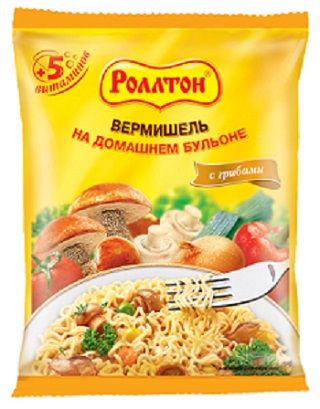Category: "Uncategorized"
Бумажник
The Russian word for 'wallet' is бумажник. It declines like so:
| Sg | Pl | |
| Nom | бумажник | бумажники |
| Acc | бумажник | бумажники |
| Gen | бумажника | бумажников |
| Pre | бумажнике | бумажниках |
| Dat | бумажнику | бумажникам |
| Ins | бумажником | бумажниками |

Here are a few sample sentences:
| Он потерял свой бумажник. | He lost his wallet. |
| Милиционер нашёл мой бумажник в парке. | The police officer found my wallet in the park. |
| Его бумажник был пуст. | His wallet was empty. |
| Почему у тебя нет бужажника? | Why don't you have a wallet?. |
| В бумажнике находились его водительские права, деньги и кусок засохшей жвачки. | The wallet had his driver's license, some money and a piece of dried-up gum. |
Кирпич, часть вторая
Previously we discussed the endings and common uses of кирпич ‘brick.’ There is a Russian idiom that uses this word, «морда просит кирпича», which literally means “his face is asking for a brick.” It means someone whose face is really ugly, and it’s often accompanied by the idea that the person’s behavior is vulgar as well. The word for ‘face’ in these contexts is often «рожа, морда», which don't really have equivalents in current American English, although previously “mug, puss” were mild versions of them. Sometimes the phrase is associated with the very vulgar ебало, a word for face that is derived from the Russian eff word, which generally foreigners should avoid using. English has a few idioms to express the idea of someone being exceedingly ugly. Among them are:
- ugly as sin
- ugly as a stick
- ugly as a baboon’s ass
Here is an example of how the кирпич idiom is used in Russian.
| Сегодня ко мне на собеседование очередной кандидат заявился. Тот ещё кадр: все руки в наколках, морда кирпича просит, и перегаром прёт за три метра. Пришлось вежливо отказать. (source) | Our next applicant came to see me today. What a great co-worker he’d be: tatoos all over his arms, ugly as a baboon’s ass, and reeking of alcohol from ten feet away. We had to politely reject his application. |
| — Ты вчера познакомился с другом Светы? — К сожалению, да. Он такой урод! — Что ты имеешь ввиду? — Такой роже и кирпич не поможет. — Да ты что! Наверно переувеличиваешь. — Сама посмотри! Я не удержался, перешлось сфотографировать. |
“Did you meet Sveta's friend yesterday?” “Unfortunately, I did. He is so freakin’ ugly.” “What do you mean?” “If you hit him in the face with a brick, it would be an improvement.” “Oh, come on. You must be exaggerating.” “You should look for yourself. I couln’t help myself. I had to take a picture.” |
Although the phrase is mostly used of physical ugliness, it can be used metaphorically as well. There is a well-known piece of WWII bilingual Nazi propaganda that uses the phrase:
| Бей жида-политрука, рожа просит кирпича (source) | Kill the Jewish political officer; he’s as ugly as sin. |
Y’know, most of the time I'm delighted to present a Russian idiom, but on this occasion it makes me sad. The idea that those who are ugly deserve a brick in the face is a horrible one. There is, I think, evolutionarily in many human beings an idea that those who are weak, ugly, less fit for the wolves-vs-sheep existence decreed by pure materialism, an idea that such people are less fit to live, to be happy, to survive to wisdom and maturity... that idea is simply awful. Instead we should dedicate ourselves to a life where not only the strong-vicious-dominant survive. It is one of the reasons that I think religion is still significant in the scientific age: religion teaches that we will be judged in the same way that we treat the least of our brethren. Let us live in such a way that we do not have to throw a brick in the face of those who are different from us, those who are odd, those whom we don't yet understand. That way we can all enter the next millenium knowing that we have done the best we can to pursue kindness, wisdom and diversity in the best sense. And if you think you don't like the idea of diversity, then you need to rethink that right now.
Морж
The Russian word морж means 'walrus'. It declines like so:
| Sg | Pl | |
| Nom | морж | моржи |
| Acc | моржа | моржей |
| Gen | моржа | моржей |
| Pre | морже | моржах |
| Dat | моржу | моржам |
| Ins | моржом | моржах |

Here are a few sample sentences:
| С такими усами он был похож на моржа. | He looked like a walrus with that moustache. |
| Я видел большого моржа во время своей поездки в Арктику. | I saw a big walrus on my trip to the Arctic. |
| В Центральном парке стоял морж в цилиндре и с моноклем. | A walrus wearing a top hat and monocle was in Central Park. |
| Я — морж. | I am the walrus. |
Худеть/Похудеть
The Russian verb pair худеть/похудеть means 'to lose weight'. It conjugates like so:
| Imperfective | Perfective | |
| Infinitive | худеть | похудеть |
| Past | худел худела худело худели |
похудел похудела похудело похудели |
| Present | худею худеешь худеет худеем худеете худеют |
No such thing as perfective present in Russian. |
| Future |
буду худеть будешь худеть будет худеть будем худеть будете худеть будут худеть |
похудею похудеешь похудеет похудеем похудеете похудеют |
| Imperative | худей(те) | похудей(те) |

Here are some examples:
| Ты отлично выглядишь! Ты похудела? | You look great! Did you lose weight? |
| Я хочу похудеть. | I want to lose weight. |
| Он каждый день тренировался с Ричардом Симмонсом и от этого похудел. | He exercised with Richard Simmons every day and lost weight. |
Бомж-пакет
Бомж-пакет is a Russian colloquialism. Now, Google Translate, in its primitive wisdom, translates this word into English as "bum-bag", which is a very literal translation, but doesn't really capture the essence of the word. It's actually used as slang for instant noodles, what Americans would refer to as "ramen." Instant noodles have been the infamous staple of the college student and bachelor diet. From what I've read, the word aims to poke fun at instant noodles, equating it to hobo food essentially. It's actually kind of surprising that instant noodles are popular in Russia, I never would have guessed. Instant noodles in Russia come in a variety flavors, such as, mushroom, mixed vegetable, chicken, and so on. Again, this word is slang, though it's not extremely vulgar, you might not want to blurt it out in a business meeting.

Here are some examples:
| —Что ты ел вчера вечером? — Бомж-пакет. |
“What did you eat last night?” “Hobo ramen.” |
|
— Ты умеешь готовить? — Только бомж-пакеты. |
“Do you know how to cook?” “Just hobo ramen.” |